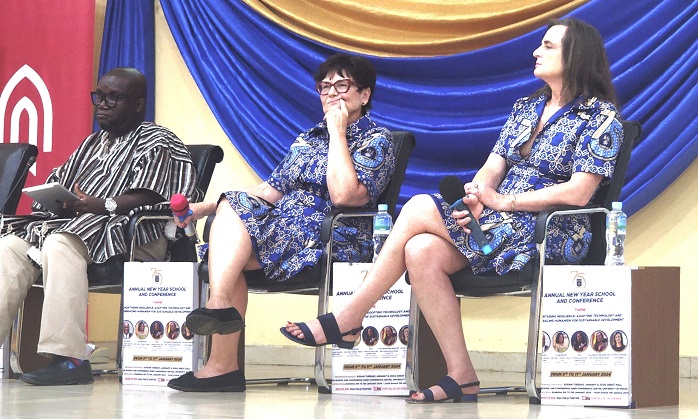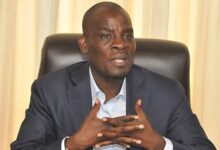
Speakers at the 75th Annual New Year School and Conference (ANYSC) have identified challenges associated with digitalisation in the country as marring the growth of interest in the technology.
They have therefore, called for pragmatic efforts to address the challenges in order to whip up the interest of more Ghanaians to join the ongoing digitalisation drive.
According to them, challenges, including costly internet data and limited accessibility to smart phones and computers had discouraged many Ghanaians from tapping into the opportunities and projects offered by digitalisation.
They said high data cost was a barrier for many young individuals, especially those in economically-disadvantaged communities, thereby limiting their ability to access online resources like coding platforms and job opportunities.
The speakers were Chief Executive Officer of the Ghana Chamber of Telecommunications, Dr Ken Ashigbey, Professor Katrin Niglas, a Vice Rector at the University of Tallinn (UT), Estonia, and Prof. Katrin Saks, also from UT.
They spoke on the topic ‘Nurturing Resilience and Leveraging Technology to Achieve Sustainable Growth’ at a panel discussion organised by the Institute for Democratic Governance (IDEG) as part of the ANYSC on Tuesday.
IDEG, one of the leading think tanks in the country, is collaborating with the School of Continuing and Distance Education of the University of Ghana, to hold the ANYSC.
Dr Ashigbey stated that Ghana remained poised to harness the power of technology to propel itself towards sustainable economic growth, but there were challenges.
He mentioned that the government recognised the pivotal role technology played in modern economies and would continue to work towards removing obstacles that hindered the development of the sector.
Internet access, Dr Ashigbey said was a gateway to economic opportunities and powerful tool for skill development, so the government remained focused on improving access to internet across the country.
“Increased access to online learning platforms and educational content helps individuals to develop themselves and make them relevant in a rapidly evolving job market. We cannot just talk about all these issues without considering individuals who, due to their location, cannot access internet,” he said.
Dr Ashigbey said that “these are pertinent issues we also worry about and working towards changing the narrative in that regard.”
Prof. Niglas expressed the view that increasing access to internet was not just about connecting people online but about empowering individuals, fostering economic growth, enhancing education, and creating a more inclusive and interconnected world through the benefits of digitalisation.
She stated that access to smart phone devices by young people should be increased because that was one of the ways people learned to develop interest in technology.
“Affordable internet access serves as a catalyst for innovation, empowering the youth to create and launch new digital initiatives,” Prof. Niglas said.
To promote digital inclusion, Prof. Saks stated that there was the need to ensure that everybody had equal opportunities to engage in the digital world.
In an open forum, participants expressed the fear that the lack of access to internet in some parts of the country and several other challenges could hinder Ghana’s progress at realising the country’s full digitalisation agenda.
BY RAISSA SAMBOU




